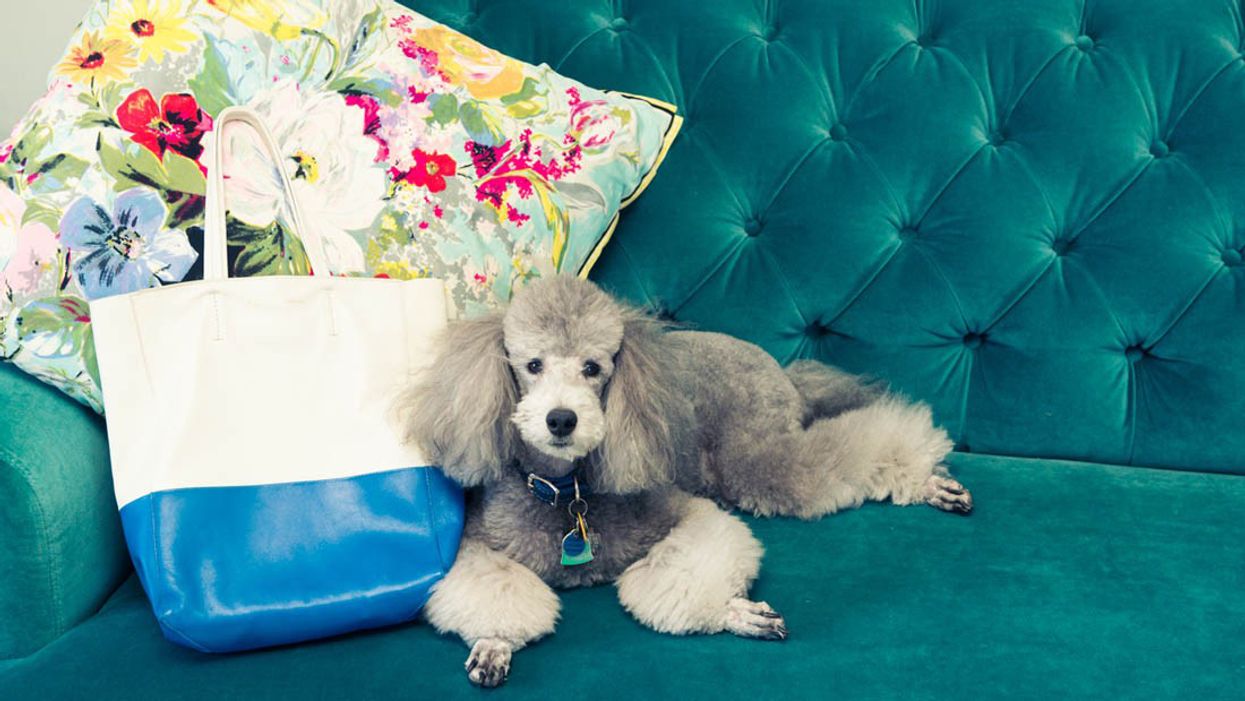The Wellness Industry Is Coming for Your Pets
If CBD and high-end vitamins are good enough for us, they’re good enough for our cats and dogs.

If you’re a person with access to the internet, you’re probably aware that the wellness industry has ballooned as of late. Jump-started by companies such as Goop, peddling all-natural skin care straight to your inbox, many (many) others have hopped on the bandwagon. It is becoming increasingly common to meditate or whip up smoothies with maca and moringa powder or take CBD.
It seems as though the wellness industry simply cannot be contained, which means it’s on to the next frontier: pets. The pet supplement industry alone was valued at around $636 million last year, as Vox reports—and that doesn’t even include all of the money poured into cat toys made of “pasture-raised organic wool.” (I swear this is really a thing.)
As might be expected, the biggest players in the wellness-for-pets game are millennials, because we can’t resist anything that purports to make us, or our loved ones, feel better or calmer or even a little bit more immortal. According to the report Vox references, 25- to 34-year-old dog owners are the ones shelling out the most on pet supplements.
This wasn’t by a small margin: Dog owners spent four times as much as cat owners did last year, making more than three-quarters of pet supplement sales. CBD oil is not cheap, and CBD dog biscuits made of organically grown hemp (yup, this is also a thing) don’t grow on trees.
Millennials now spend more money on pets than boomers, and part of that can be chalked up to our attitude on wellness in general, as Vox reports. Boomers might see personalized dog vitamins as being a tad over-the-top if their dogs are healthy, but millennials don’t necessarily see things that way.
The gentle, relaxing slope to wellness is a slippery one indeed. Part of the explosion in the pet wellness space (three words we never thought we’d see together, but here we are) owes to the rise of the internet, as the new report found: Two years ago, a quarter of dog owners who buy supplements did so online, and this year, nearly half did. Part of it is that millennials see their pets like kids—since we’re not having children ourselves, our dogs and cats are our proxies.
But perhaps one of the greatest factors really is the interest we’ve taken in “wellness” in general, with emphasis on the all-powerful CBD. The thinking seems to be that if what’s good for the goose is good for the gander, what’s good for me is good for my pet. As the report put it, “pet supplement purchasers are more likely to be supplement takers themselves.”
If you’re off to subscribe to a pet vitamin or purchase some organic broad-spectrum hemp-oil dog chews, godspeed. But keep in mind that pet supplements, just like the ones we take, aren’t regulated, and supplement companies don’t have to prove their products do what they say they will, which means it’s on the companies themselves to ensure safety. Keep an eye on the National Animal Supplement Council, which publishes a list of primary and preferred suppliers upon which the council bestows “total quality confidence throughout the entire supply chain, from start to finish.” If your favorite supplements are on those lists, you’re safe. If not, you might want to consider getting your locally sourced artisanal treats elsewhere.
Want more stories like this?
Coveteurs’ Pets
Is the English Language Anti-Animal?
You’ll Lose It Over These Dogs in Dad Sneakers




